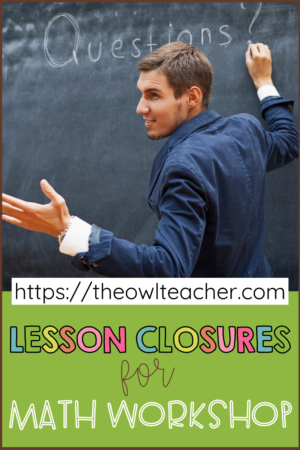
In math workshop, there is one last piece that we need to talk about. It is often a forgotten piece or a piece that is left out because of time. It’s during the last 5-10 minutes of math workshop and an important piece. It’s considered about 10% of the entire make-up. Without this piece, students could miss out on sharing strategies, reflections, and so much more! It’s the lesson closure.

When closing the lesson in math workshop, it’s more than just quickly summarizing the lesson for the day. It’s about deepening learning, making meaning of the content, and helping extend it if possible. This can be done through a variety of lesson closures and strategies.
Sharing strategies are one of the best lesson closures for math workshop because students get to explore other students’ thought processes and how they solved problems.
Call on various students to share the strategy they used, how they solved the problem, and how the process they used to get there. Through this students can learn new strategies and see that in math there is not always one path that leads to the answer.
At the end of the lesson, share with students an error you may have noticed or a common misconception. Then together discuss what error was made, why it’s wrong, and how it can be corrected. This can help students notice if they make this error themselves and how to correct it without having the “embarrassment” of being called out. I do not recommend using any students from your class or their work as an example. Students recognize handwriting. I would just create a “hypothetical” example based on errors you’ve observed over the years or look for error practice sheets online.
There are a variety of exit tickets that can be used or created. For instance, you could have students anonymously write down any questions they still have on sticky notes, quickly collect them, and address them before math workshop ends. Another option would be to provide a problem on an exit ticket for students to solve or to apply the concept. This helps you determine your students’ level of understanding. I’ve used exit tickets many times to help me decide grouping for my small groups.
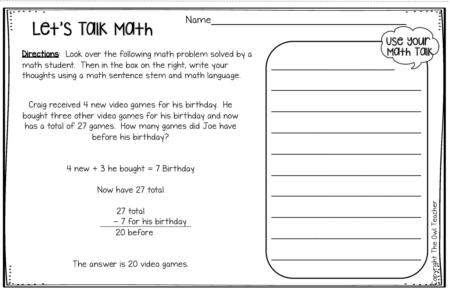
Another option to end your math workshop is to have students discuss the day’s lesson. This can be done by having students pair up or meet in groups and then provide them with a quick question or problem related to the day’s lesson. As students work through the problem or discuss the question, they use math vocabulary, math stems, and other math talk. This helps them develop more mathematical thinking and language. An example a teacher might provide is, “How do you know the difference between the three addition properties?” or “Share with a neighbor how to find the missing number of a problem.“
Just like with exit tickets, reflections and self-assessment can be as in-depth or simple as you’d like. You can make it multiple choice, emoji, or ask open-ended questions that require a written out answer with deep thought. The point of the reflection/self-assessment is to have students think about the lesson and how it went for them. It allows for them to make meaning of the content.
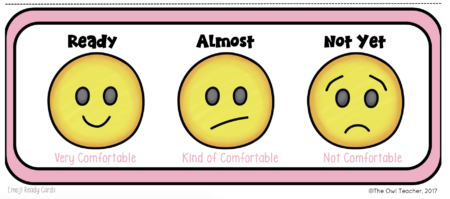
Journaling is similar to math talk and reflection. The difference is students are writing down their thoughts on paper and typically only sharing it with their teacher. This helps students feel a little less apprehensive and more likely to be more open. Just like with exit tickets, students can be asked a question and they reflect on their learning as they answer the question more privately. It’s also a great way to bring more writing into math. This image below is part of my math journal responses pages that is both digital and print. You can find that resource here.
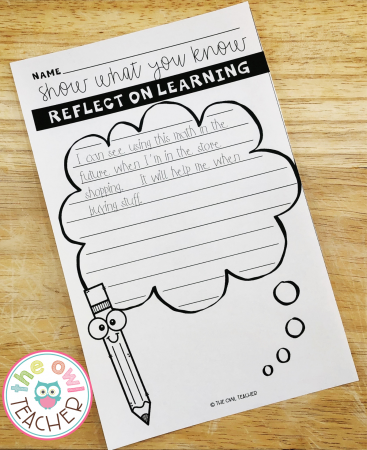 can bring more writing into their math classrooms beyond just solving equations." width="367" height="450" />
can bring more writing into their math classrooms beyond just solving equations." width="367" height="450" />
Are there more lesson closure ideas? Absolutely. These are just the main ones for math workshop. Of course, you can do think-pair-share, roll and share, or $2.00 summary!
The main point is that in math workshop, the lesson closure is important to help solidify the lesson learned. Not only does it benefit the students by reviewing and extending their understanding, it also benefits the teacher to help him or her see what the students know.
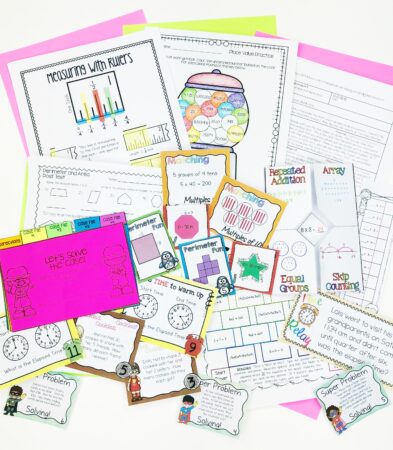
Are you looking for already completed-for-you math workshop units? I currently have math workshop units for grades 3, 4, and 5. Check out my Teachers Pay Teachers store with math workshops here.

Want to read more about Math Workshop? Check out these additional “Everything You Need to Know to Run Math Workshop Successfully” Posts: